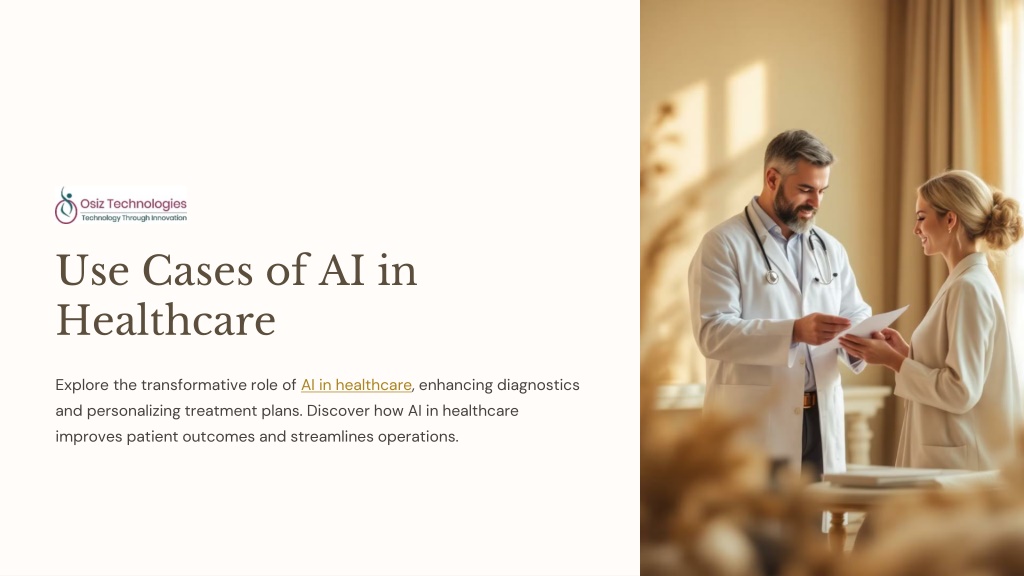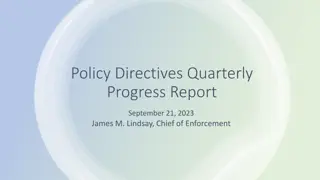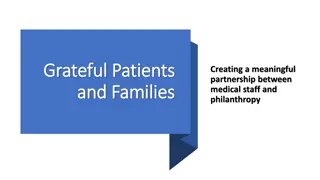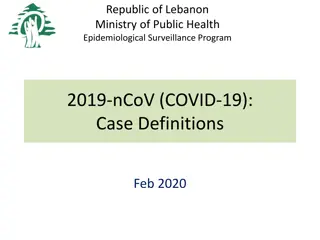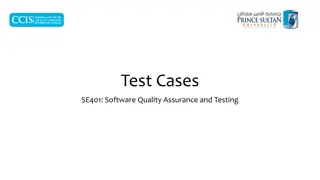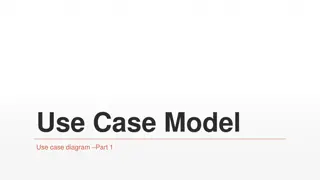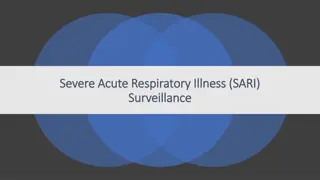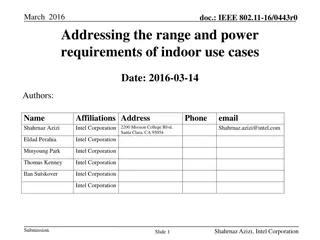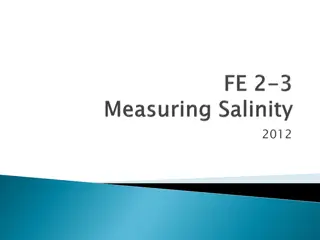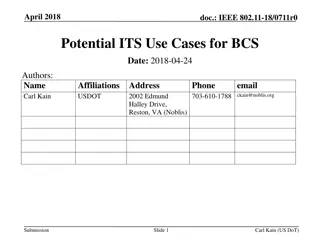Use Cases of AI in Healthcare
We have shared the top use cases of AI in the healthcare industry, including medical imaging, drug discovery, patient data management, and predictive analytics with improved efficiency, and patient outcomes.
Download Presentation

Please find below an Image/Link to download the presentation.
The content on the website is provided AS IS for your information and personal use only. It may not be sold, licensed, or shared on other websites without obtaining consent from the author. Download presentation by click this link. If you encounter any issues during the download, it is possible that the publisher has removed the file from their server.
E N D
Presentation Transcript
Use Cases of AI in Healthcare Explore the transformative role of AI in healthcare, enhancing diagnostics and personalizing treatment plans. Discover how AI in healthcare improves patient outcomes and streamlines operations. preencoded.png
Improving Diagnostic Accuracy Image Analysis Predictive Modeling AI algorithms can analyze medical images, such as X-rays and MRI scans, with unparalleled precision, detecting subtle patterns and anomalies that can aid in early diagnosis. AI-powered predictive models can analyze patient data and identify risk factors, enabling proactive intervention and personalized treatment plans. Clinical Decision Support Automated Screening AI-driven clinical decision support systems can provide clinicians with real-time insights and recommendations, enhancing their diagnostic capabilities. AI-powered screening tools can help triage patients, ensuring that critical cases receive immediate attention and reducing the burden on healthcare providers. preencoded.png
Streamlining Clinical Workflows Task Automation Predictive Analytics Intelligent Assistants AI can automate repetitive administrative tasks, such as scheduling, documentation, and billing, freeing up healthcare professionals to focus on patient care. AI-driven predictive analytics can forecast patient needs, optimize resource allocation, and improve operational efficiency in healthcare settings. Virtual nursing assistants and chatbots powered by AI can provide 24/7 support, answering patient queries and guiding them through their healthcare journey. preencoded.png
Enhancing Patient Engagement Remote Monitoring Virtual Assistants Personalized Education Care Coordination AI-enabled wearable devices and mobile apps can continuously monitor patient health, providing real-time feedback and enabling early intervention. Conversational AI chatbots can offer personalized guidance, answer questions, and provide emotional support to patients, improving their overall experience. AI can facilitate seamless communication and collaboration between patients, healthcare providers, and caregivers, enhancing the overall continuum of care. AI-powered tools can deliver tailored health education and wellness programs, empowering patients to take an active role in their care. preencoded.png
Personalizing Treatment Plans Genomic Analysis 1 AI can analyze a patient's genetic data to identify specific biomarkers and risk factors, enabling the development of personalized treatment strategies. Predictive Modeling 2 AI-powered predictive models can simulate the potential outcomes of different treatment options, helping clinicians make informed decisions tailored to the individual patient. Adaptive Therapy 3 AI can continuously monitor patient response and adjust treatment plans dynamically, ensuring optimal outcomes and minimizing adverse effects. preencoded.png
Accelerating Drug Discovery Target Identification Virtual Screening Predictive Modeling AI algorithms can analyze vast amounts of data to identify potential drug targets and biomarkers, accelerating the early stages of drug discovery. AI-powered virtual screening can simulate the interactions between drug candidates and target molecules, drastically reducing the time and cost of the drug discovery process. AI-driven predictive models can forecast the safety and efficacy of drug candidates, enabling more informed decision-making and reducing the risk of late-stage failures. preencoded.png
Optimizing Resource Allocation Demand Forecasting Inventory Management Workforce Planning AI can analyze historical data and current trends to accurately forecast healthcare demand, allowing for proactive resource planning and efficient allocation. AI-powered supply chain optimization can minimize waste, ensure timely availability of critical supplies, and reduce overall healthcare costs. AI can help healthcare organizations predict staffing needs, identify skill gaps, and optimize workforce deployment to meet the evolving demands of patient care. preencoded.png
Predicting Disease Outbreaks Epidemiological Modeling Early Warning Systems 1 2 AI-enabled surveillance systems can detect anomalies in real- time data from various sources, providing early warning of potential disease outbreaks, enabling timely intervention. AI-powered epidemiological models can analyze vast datasets, including environmental factors and population dynamics, to forecast the spread of diseases and identify emerging threats. Resource Optimization 3 AI can help healthcare organizations optimize the distribution of resources, such as vaccines and medical supplies, based on predicted demand and disease patterns. preencoded.png
Reducing Administrative Burden Automated Documentation Intelligent Coding AI-driven natural language processing and computer vision can automate the generation of clinical notes and documentation, freeing up healthcare professionals' time for patient care. AI-powered coding and billing systems can accurately analyze patient records and automatically generate the appropriate codes, streamlining administrative processes. Fraud Detection Workflow Optimization AI algorithms can analyze healthcare claims and transaction data to identify patterns of fraudulent activities, helping organizations maintain financial integrity and compliance. AI can optimize workflows by automating repetitive tasks, streamlining communication, and providing real-time insights, reducing the administrative burden on healthcare teams. preencoded.png
